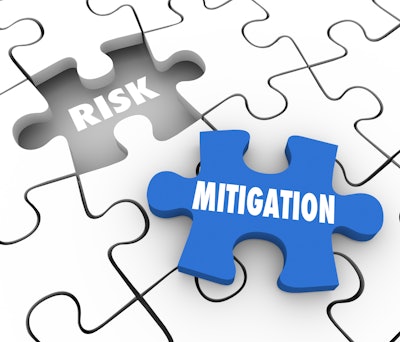
Business leaders worldwide are grappling with an unprecedented convergence of risks, from escalating cyber threats and rapid AI adoption to regulatory complexity, as well as economic and geopolitical instability, as outlined in Kroll’s “2025 Global Business Sentiment Survey: Resilience, Risks, and Preparedness.”
"We're in the midst of a business environment defined by volatility, uncertainty, complexity, and ambiguity, posing significant challenges for leaders around the world. The global data benchmarks and expert insights in the Kroll 2025 Global Business Sentiment Survey can help companies mitigate risks, boost their resilience, and prepare for the unique challenges that lie ahead," says Jacob Silverman, CEO at Kroll.
Key takeaways:
· Fewer than one-third of business leaders feel "very prepared" to take on the range of challenges they may face, including technology integration, AI implementation, regulatory changes and potential trade disruptions.
- Nearly three-quarters (74%) of organizations report increased cybersecurity and data privacy concerns, with the most common threats including malware (44%) and AI-powered exploits (28%).
- Recent and prominent cyberattacks across the globe have only fueled business leaders' concerns over keeping sensitive information secure; cybersecurity threats rank among the most significant business challenges to organizations (47%), followed by AI developments and integration (43%).
- Only 12% of companies feel "completely prepared" to address the global patchwork of data privacy laws, exposing significant compliance gaps at a time when regulatory requirements are becoming more complex. Countries like Saudi Arabia and the United Arab Emirates, Singapore and the United States are among those feeling the most adequately prepared.
- Despite more than three-quarters of respondents believing AI will deliver measurable ROI, only 41% of companies have AI policies and guidance in place and slightly more than a third (34%) have implemented continuous monitoring, leaving organizations exposed to unregulated decision-making, compliance failures and ethical risks.
- Fewer than one in 10 business leaders express full confidence in their company's financial health, though 70% expect some degree of improvement even as they confront the challenges ahead.
- Globally, one in three respondents ranked geopolitical tensions among their top business challenges for the year ahead, with companies in the United States, UK and Europe most likely to see it as a major concern. Tariffs, technology controls and cybercrime, supply chain disruption, regulatory shifts, and sanctions were cited as the highest areas of geopolitical concern.
- U.S. companies indexed higher than global peers on concerns regarding inflation and domestic political tensions, while evolving data privacy regulations worry European companies more than other regions.
- Geopolitical tensions are amplifying supply chain risks and increasing the threat of attacks on critical infrastructure. Only 28% of global business leaders say they feel "very prepared" to address geopolitical tensions and trade disruption.
- Financial uncertainty and geopolitical tensions are creating a volatile landscape for global businesses in 2025, forcing leaders to navigate a complex mix of economic, regulatory and operational risks.
- Approximately 90% of organizations report some degree of automation across business activities, with IT and cybersecurity functions becoming highly automated and digitized, especially in the Middle East, South Africa, the United States and Brazil.
- Across the board, at least four in 10 business leaders are increasing budgets, expanding teams, upskilling and/or hiring external help for AI integration, tech advancements, cybersecurity challenges and data privacy concerns.




















